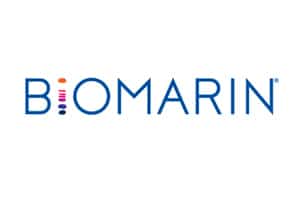
England’s cost-effectiveness watchdog has today rejected BioMarin’s Battten disease therapy Brineura (cerliponase alfa) during final guidance.
The decision, which was published under NICE’s Highly Specialised Technology (HST) committee, marks the end of a year-long negotiation between BioMarin and NHS England.
The disease only affects up to six infants each year (with up to 50 children in the UK living with the condition), but the £500,000 ($651,100) per patient, per year, list price was considered to be not value for money in the absence of long-term effectiveness data.
The committee initially agreed that Brineura shows substantial short-term benefits in slowing down the rate of Batten disease progression in draft guidance, but said BioMarin was unable to price the treatment at a level that would have addressed the problems highlighted during NICE’s assessment.
Meindert Boysen (below), director of the Centre for Health Technology Evaluation at NICE, said: “The committee concluded that it is not possible within the NHS to manage complex components of the confidential commercial arrangement proposed by the company.

“Once these elements are excluded, the cost-effectiveness estimates for cerliponase alfa are far higher than NICE normally considers acceptable for highly specialised technologies. We are therefore left with no alternative but to conclude that cerliponase alfa cannot be recommended as a cost-effective use of NHS resources.”
Although not a cure, Brineura is an enzyme replacement therapy administered directly into the brain via a surgically implanted permanent access device.
Results from a phase 1 and 2 clinical trial show that those treated with Brineura reduced a decline in motor and language function in children with Batten disease.
Also known as CLN2, the disease is caused by the deficiency of the enzyme tripeptidyl peptidase 1. This results in the abnormal storage of proteins and lipids in neurons and other cells, preventing them from functioning normally.
Symptoms begin from the age of 2, and can progress rapidly with the onset of seizures, decline in speech, loss of mobility, involuntary muscle spasms, progressive dementia and visual impairment leading to blindness.
There is currently no cure or life-extending treatments available for CLN2, and clinical management is limited to symptom relief and supportive care.
Boysen added: “Given the significant burden this disease places on children with the condition and on their parents and carers, and the subsequent negative impact this can have on the quality of their lives, anything that can help to improve treatment is to be welcomed.
“We and NHS England have been very clear with the company about what would be needed in order for us to be able to recommend cerliponase alfa. However, despite being given ample opportunity to come up with a workable solution, regrettably the company has not been able to do so.”
Despite the hold up in the UK, the drug was the third highest earner for BioMarin in 2018, bringing in $31.3m, attributed to new patients initiating therapy after its product launch in mid-2017.




